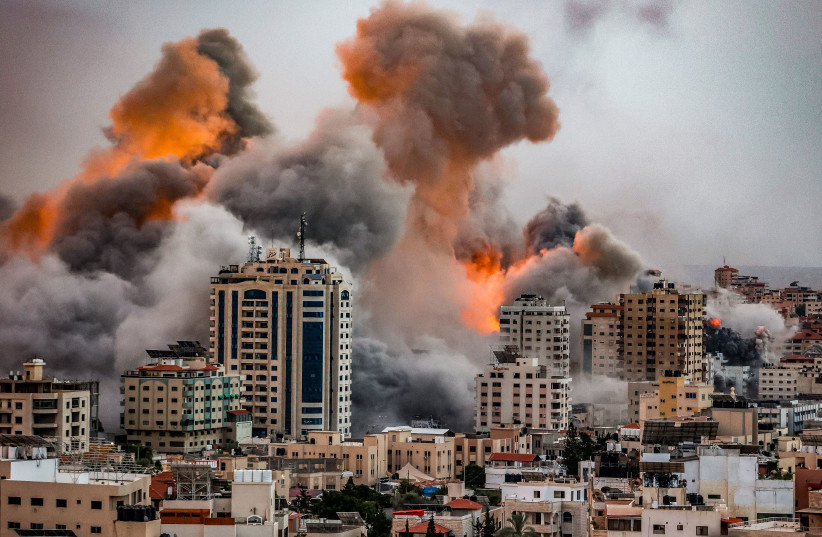The Israeli army is likely to remain in Gaza in the immediate aftermath of the war until such time as a security architecture is drawn up for the enclave, US National Security Council spokesperson John Kirby told reporters on Wednesday.
“In the immediate aftermath of conflict, it’s certainly plausible that at least some period of time, Israeli defense forces are still going to be in Gaza to manage the immediate aftermath [of the war] and the security situation,” Kirby said.
“But it shouldn’t be the long term solution. It should not be about the IDF reoccupation of Gaza as a long term governance solution.
Prime Minister Benjamin Netanyahu had told ABC earlier this week that “Israel will, for an indefinite period, have the overall security responsibly, because we have seen what happens when we do not have it.”
The White House and the State Department have clarified, however, that the territory must eventually be controlled by Palestinians, possibly the Palestinian Authority, in a situation where both Gaza and the West Bank are unified under one government.

Biden Admin.'s vision for after Gaza war
US Secretary of State Antony Blinken discussed with reports in Tokyo, the Biden Administration’s vision of the day after the Gaza war.
The Biden administration has backed Israel’s assertion that Hamas must be ousted from Gaza in order to prevent a repeat of the October 7 attack in which the terror group killed over 1,400 people and seized over 240 hostages, Blinken said.
“Gaza cannot be – continue to be run by Hamas. That simply invites a repetition of October 7th and Gaza used as a place from which to launch terrorist attacks,” Blinken stated.
“The reality is that there may be a need for some transition period at the end of the conflict, but it is imperative that the Palestinian people be central to governance in Gaza and in the West Bank,” Blinken stated.
Ultimately, however, the only way to prevent another October 7 style terror attack, is a permanent change to the reality on the ground such that it would allow for a “durable peace” in Gaza, Blinken said.
He outlined the Biden administration’s principles for the day after the war.
Palestinians must not be forcibly displaced from Gaza, “not now, not after the war,” Blinken said, as he outlined a series of restrictions for Israel with respect to its relationship to Gaza.
“No [Israeli] reoccupation of Gaza after the conflict ends. No attempt to blockade or besiege Gaza. No reduction in the territory of Gaza,” Blinken said.
His comments referenced a desire among some Israelis for the IDF to return to Gaza, a territory it controlled from 1967-2005, before it withdrew from the territory. The Palestinian Authority then controlled it, until Hamas forcibly seized control in a bloody coup in 2007.
The security situation is also important, Blinken said, explaining that neither Gaza nor the West Bank can be platforms for terror attacks to be launched against Israel.
To get to a situation of peace, he said, “the Palestinian people’s voices and aspirations” must be “at the center of post-crisis governance in Gaza.
“It must include Palestinian-led governance and Gaza unified with the West Bank under the Palestinian Authority,” Blinken stated.
“And it must include a sustained mechanism for reconstruction in Gaza, and a pathway to Israelis and Palestinians living side by side in states of their own, with equal measures of security, freedom, opportunity, and dignity,” Blinken explained.
“We believe that the time is now to start the conversation about the future – not tomorrow, not after the war – today – because identifying the longer-term objectives and a pathway to get there will help shape our approach to addressing immediate needs,” Blinken stated.
